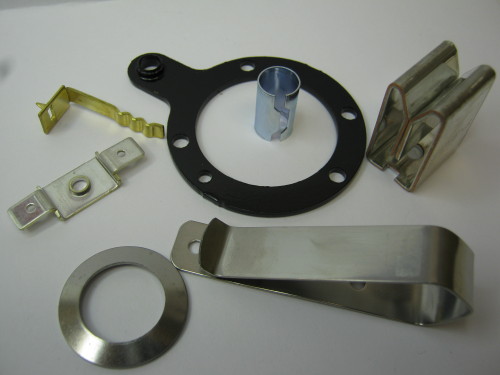Working with Chromel, Alumel & Constantan
As applications throughout industries become increasingly specialized, it is more important than ever to find custom materials for unique project requirements. The range of materials available for engineers and MROs are truly varied, and includes a number of unique materials, such as chromel, alumel and constantan.
 Chromel, alumel and constantan contain unique material properties or characteristics that are necessary to ensuring the success of certain applications. However, these particular materials are incredibly difficult to work with, so there are few manufacturers who have the expertise or ability to manufacture parts using these metals.
Chromel, alumel and constantan contain unique material properties or characteristics that are necessary to ensuring the success of certain applications. However, these particular materials are incredibly difficult to work with, so there are few manufacturers who have the expertise or ability to manufacture parts using these metals.
Chromel: Chromel is an alloy of an estimated 90% nickel and 10% chromium. It is used in the fabrication of the positive conductors of ANSI Type E and Type K thermocouples, devices for measuring temperature consisting of two different conductors.
 This alloy can withstand a wide range of temperatures (-452°C up to 1100°C) in oxidizing environments. It is a proprietary trademark of Concept Alloys, Inc., a manufacturer of thermocouple wire and other high performance alloys.
This alloy can withstand a wide range of temperatures (-452°C up to 1100°C) in oxidizing environments. It is a proprietary trademark of Concept Alloys, Inc., a manufacturer of thermocouple wire and other high performance alloys.
Alumel: This magnetic alloy consists of approximately nickel (95%), manganese (2%), aluminum (2%), and silicon (1%), leading to good electrical resistivity and thermal conductivity. In addition to thermocouples, alumel is used for thermocouple extension wire. In thermocouples, the alloy is used with chromel to fabricate type K thermocouples.
Constantan: This alloy usually consists of 55% copper and 45% nickel. Its greatest advantage is a constant resistivity over a wide spectrum of temperatures. It is also used in the production of thermocouples, along with iron, copper, chromel and alumel.
At Keats Manufacturing Co., we pride ourselves on our dedication to customization, designing and fabricating custom stamping solutions through the use of countless materials, including chromel, alumel and constantan.
We have decades of experience working with these unique, exotic alloys. Thermocouples and thermal processing procedures need to withstand high temperatures. Through our expertise with chromel, alumel, and constantan, we can help design and fabricate thermocouples, gas pressure regulators, and meters that perform efficiently in high heat applications and provide accurate measurements to ensure safety.
One of our customers, Heat Equipment and Technology (HEAT, Inc.), exemplifies the importance of proper manufacturing expertise when working with these alloys. HEAT, Inc. has depended on Keats for precision components for the combustion industry. As these applications demand exposure to high heat, manufacturers need to be able to machine exotic alloys like chromel, alumel, and constantan for successful and safe customized measurements and controls.
Utilizing a metal stamping provider with specialized design expertise is one way to reduce overhead and enhance performance of your metal stamped part. To learn more factors that affect the time and cost of your project, download our ebook, 10 Ways to Reduce Turnaround Time & Cost of a Metal Stamped Part.
You can also find out more about our expertise providing custom solutions for applications across industries by browsing our capabilities. Feel free to contact us with any questions about the unique needs of your next stamping or prototyping project.

